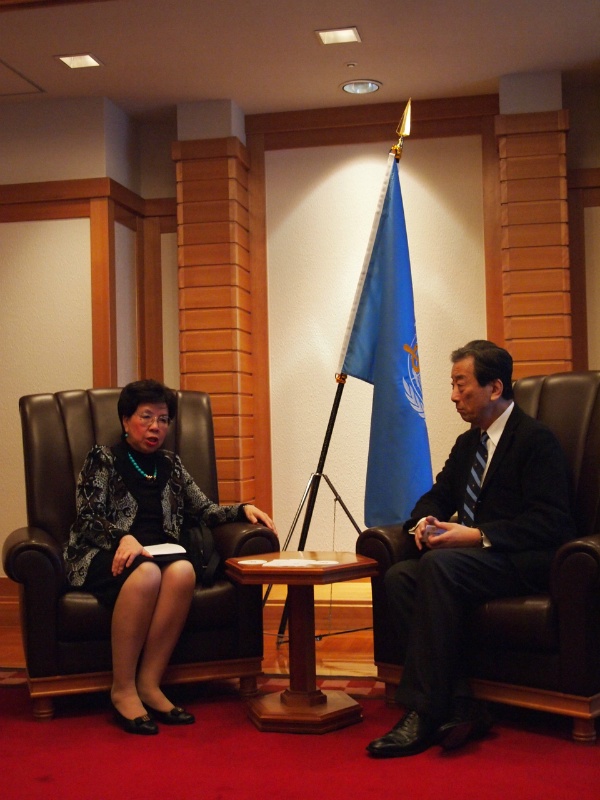→Japanese
On many recent occasions, the issue of the declining numbers of Japanese students who seek international study is being pointed out. This trend seems to apply to the field of science, also. In this global age, many Asian young scientists go abroad to study at western universities in the hope to structure better careers. They know that this will give them better chances to access opportunities that lead to popular international careers sought by future leaders of the world.
Typically in Japan scientists work for 2-3 years as Post-Docs at western universities and then go back to their home institution or lab for permanent jobs. Going abroad to earn PhD degrees and remaining there to build a career will present unexpected challenges in Japan. However, this is also definitely a way that will enable one to professionally work anywhere in the world.
Recently, though, the number of Japanese Post-Docs going abroad for research is declining. There is also a decline in the number of Japanese students who earn PhD degrees overseas , which is low to begin with. This difference is the most conspicuous difference between Japan and other Asian countries. In other Asian countries the number of youths going to western countries for higher educations is rapidly increasing. I truly am bothered by our young Japanese researcher’s inward-guided mindsets..
Unlike the so-called ‘great’ professors in Japanese Universities, there are very few scientists actively working in the U.S. (such as Professor Kobayashi of Princeton University) (Ref.1, 2,3 4) who share the same concern as me.
The problem is that distinguished professors have certain privileges and have ulterior motives. . Though agreeing to the overall idea of international education, they will never actually let go of their young scientists for study abroad. This is because they are the ‘useful instruments’ or ‘hands and feet’ of the professors. I think it is quite obvious that most of the university faculties have insular mindsets (Ref.1).
The foundation for this mindset is clear when you look at what the profession provides: a professorial position ensures comfort in many ways in Japan. The Japanese society is a hierarchical society that looks up to national institutions and looks down on private institutions. Increasing the number of academic achievements is top priority for professors, rather than nurturing the students. Therefore, no matter how the university faculties pretend to support international experience, they are actually enjoying their high position within conventional Japanese society. As such, they resist innovation and educational reform just as much as other components of the Japanese social structure. Merely looking at their professional position makes it clear enough where they stand. I cannot help but believe university faculty care most about their interest.
Do you remember a Post Doc whom I touched upon in my posting a year ago in the context of an occasion where I spoke with Japanese youths working in Boston? I was strongly impacted when a Post Doc said: “What I regret most in my short life so far is that I earned my PhD degree in Japan” (by the way, he earned his PhD degree at a prestigious national university in Japan. When he sought for advice from his professor, this professor strongly recommended that he studying in a Japanese graduate school…) I think that his regret was stronger because he was trying to seek an independent career as an individual.
I noticed recently how people are taking action (Ref.1, 2) (all links are in Japanese) to address this issue. They are the few young Japanese who earned their PhD degrees in US, UK, or other western countries, currently working hard outside Japan. They share the concerns which I have described above.
Dr. Shigeki Sugii (Ref.1, 2)(all links are in Japanese)is one example. Dr. Sugii is trying to reach Japanese youths who might be interested so he may give practical advices on how to earn PhD degree in the US.
Activities to encourage overseas studies include the publication of ‘Studying Science and Technologies at Overseas Graduate Schools (Rikei Daigakuin Ryugaku)’ (in Japanese) and creation of ‘Networks of Scientists (Kagakusha Netto)’ (in Japanese) both in which I was partly involved. There are also other promotional activities happening in Japan. Still, it seems to me that these efforts are, first of all, the responsibility of the university faculty: they should encourage youth, advise them to go overseas to learn, offer them more possibilities to choose from, and always be supportive. The adults should always bear in mind that youth are our hope of making our future better. The youth are our most precious assets and resource.
Dr. Sugii and his friends organized a symposium last week under the title: ‘The First Symposium on the Careers of Doctors: How to Make the Best Use of Doctoral Degree ? Grab Chances Because Now is the Difficult Time for Job Hunters!’ (Ref.1) (in Japanese). Dr. Kitazawa, President of JST , and I were invited to deliver keynote lectures. (However, to my regret, I had to leave the site right after my speech because I had an appointment with Mr. Saisho.)
Dr. Sugii is currently working for UCSD but is planning to move to A*STAR in Singapore (Ref.1) next year. I like it. I hope and expect to see more and more young Japanese scientists go overseas to work in international settings.
I ask all adults to help youth see the whole world, create more opportunities for first hand experience, encourage them to participate in such opportunities, and give great support so that they may grow into good leaders of the global world.
This world is huge and it is there for the youth who earnestly pursue their career. As the proverbs says ‘‘If you love your child, let him/her travel (kawaii ko ni wa tabi wo sasero)’

